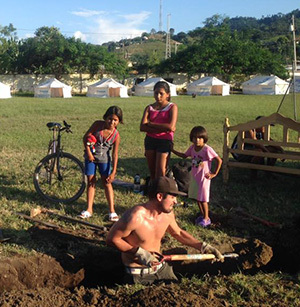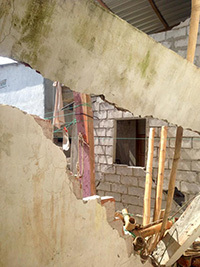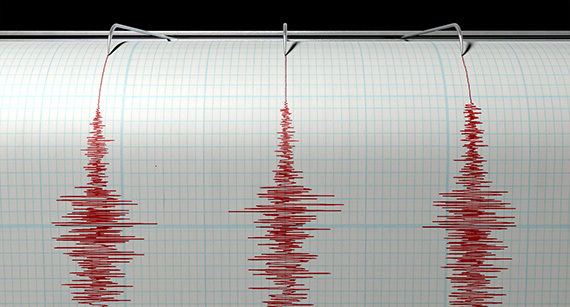My son is in South America for six months and started his journey at a small coastal village in Ecuador called Canoa, where he studied Spanish for six weeks. Shortly after he moved along to the north of the country a 7.8 magnitude earthquake struck and 85 percent of Canoa was destroyed.
I hadn't heard from my son and his girlfriend after the earthquake and a couple of days later when he had phone reception I was relieved to get an update that they were safe. An email followed a little later where he shared his involvement with relief efforts:
"Lonely Planet describes Canoa as 'a sleepy village with a heart of gold'. After having spent six weeks there a short while ago, we know this to be true! We were welcomed with open arms and open hearts. We have put our travel plans on hold for now (we just can't sit on some beach somewhere, sipping cocktails while all of this is going on)."
 I was deeply touched by his decision to take his once in a lifetime chance for extended travels and give his time and energy to help with rebuilding (that's him digging a water channel in the picture). He's been working with a local team, alongside the army in a round the clock effort to take care of the stricken area.
I was deeply touched by his decision to take his once in a lifetime chance for extended travels and give his time and energy to help with rebuilding (that's him digging a water channel in the picture). He's been working with a local team, alongside the army in a round the clock effort to take care of the stricken area.
I read recently about a survivor of the Nepal earthquake who had a PTSD reaction -- the 'survivors syndrome' of feeling guilty for coming out alive while others they knew perished. While my son wasn't at the epicenter he had spent enough time in Canoa to form friendships with the local people. So helping was not only a humanitarian gesture but perhaps a subconscious action to protect from any possible survivors guilt.
Sometimes circumstances dictate new actions and unknown depths inside oneself are discovered. Isn't that what a journey to previously unexplored foreign lands are meant to stimulate? Investigating the mysteries of Machu Picchu that create a sense of wonder, the deep jungles with their timeless character and wild nature and the majestic Andes reminding us how special our world is.
 I wonder sometimes why does it so often require a disaster or a twist of fate to make us realize our more compassionate side. I believe the world is in a big need of such thinking, now more than ever - without requiring a negative stimulus to make us act. But when there is a crisis then it is incumbent for us not to stand by and talk about it but to pitch in and help. And even if it is only the smallest gesture of kindness in our daily situation, it will make a difference. Compassion and caring is a mindset to develop and practice.
I wonder sometimes why does it so often require a disaster or a twist of fate to make us realize our more compassionate side. I believe the world is in a big need of such thinking, now more than ever - without requiring a negative stimulus to make us act. But when there is a crisis then it is incumbent for us not to stand by and talk about it but to pitch in and help. And even if it is only the smallest gesture of kindness in our daily situation, it will make a difference. Compassion and caring is a mindset to develop and practice.
In a sweet beach town on a remote coast people lost their homes and loved ones. Canoa is getting cleaned up, shelters are getting built and water is being delivered with many more deliveries to come in short order. But the people are still in need of food, medicine and many other things. If you also feel a sense of wanting to help there is a simple gofundme campaign, which will also provide a long lasting water purification system. It's run by a person my son knows personally and trusts so you can be sure your help will be well used. Take a moment to share from your heart.
